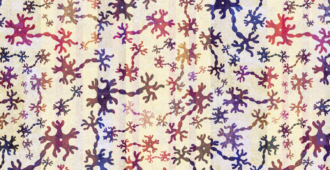While muscle cramps are a very common symptom of motor neurone disease (MND) there is currently few effective ways of management and treatment.
Even though muscle cramps are frequently reported, not a lot is known about this symptom, as research has been limited. You could say they were the Cinderella of MND symptoms – lacking attention and their moment under the spotlight compared to other symptoms.
A lack of research means we do not know how frequently people who have MND experience muscle cramps, how severe they are and whether the nature of the muscle cramps change as a person’s ALS progresses.
It is important to study this symptom, as successful management of muscle cramps will impact on quality of life.
A change in focus – Cinderella symptom no more!
A team at the University of California carried out the largest research study to date on muscle cramps in ALS, and Dr Bjorn Oskarsson (pictured) presented their work on the first day of the Symposium.
They aimed to answer important questions about the frequency, severity and progression of muscle cramps. They looked at pain levels linked to cramps and how this interferes with daily activities. They also studied treatments people used for cramps.
Nearly 300 people with ALS, registered with the National ALS Registry in the USA, completed a survey about their muscle cramps and treatments they used to control their symptoms and manage pain levels.
What did the study find out?
There is no relationship between the number of cramps experienced and duration of MND.
Muscle cramp frequency
Muscle cramps were symptoms for 92% of those who took part in survey, and was the first symptom experienced by 20% of people.
Compared to when their MND began 48% felt their cramps had increased in frequency, 23% said there had been no change and 29% though their cramps had decreased in frequency.
Treatments used for muscle cramps
47% of people did not use any treatment. Prescription medications were used by 36% of people, whereas 17% of people used over-the-counter medicines.
People using prescription medications to help treat their cramps were those who experienced more and severer cramps compared to those taking no medication or over-the-counter treatments.
More information on medicines available to help with managing muscle cramp pain is on our website.
Could muscle cramps be a way of tracking the progression of MND?
Even though muscle cramps are a common symptom of MND, it looks like they would not be a suitable way of tracking the progression of this disease. The researchers on this study found no relationship between muscle cramps and disease progression. This means they cannot be used as a reliable marker of what stage someone’s MND has reached.
What are the next steps?
This study highlights the need for more research into the management of muscle cramps, particularly in the best way to reduce their pain and severity.
Bjorn Oskarsson concluded his presentation with ‘We need to follow up this study with further research into cramp symptom management, and look more deeply into the patient and clinicians experiences of cramps and their treatment‘.
This research, together with input from doctors and people with MND, will help with developing better guidelines for care.
More information:
More information on muscle cramps can be found on the common symptoms of MND page on our website.






